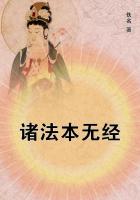But I return to the question of literary fame. All these men, and men of a hundred other classes, who laboured most commendably and gallantly in their day, may be considered as swept away into the gulph of oblivion. As Swift humorously says in his Dedication to Prince Posterity, "I had prepared a copious list of Titles to present to your highness, as an undisputed argument of the prolificness of human genius in my own time: the originals were posted upon all gates and corner's of streets: but, returning in a very few hours to take a review, they were all torn down, and fresh ones put in their places. I enquired after them among readers and booksellers, but in vain: the memorial of them was lost among men; their place was no more to be found."
It is a just remark that had been made by Hume[5]: "Theories of abstract philosophy, systems of profound theology, have prevailed during one age. In a successive period these have been universally exploded; their absurdity has been detected; other theories and systems have supplied their place, which again gave way to their successors; and nothing has been experienced more liable to the revolutions of chance and fashion than these pretended decisions of science. The case is not the same with the beauties of eloquence and poetry. Just expressions of passion and nature are sure, after a little time, to gain public applause, which they maintain for ever. Aristotle and Plato and Epicurus and Descartes may successively yield to each other: but Terence and Virgil maintain an universal, undisputed empire over the minds of men. The abstract philosophy of Cicero has lost its credit: the vehemence of his oratory is still the object of our admiration."
[5] Essays, Part 1, Essay xxiii.
A few examples of the instability of fame will place this question in the clearest light.
Nicholas Peiresk was born in the year 1580. His progress in knowledge was so various and unprecedented, that, from the time that he was twenty-one years of age, he was universally considered as holding the helm of learning in his hand, and guiding the commonwealth of letters. He died at the age of fifty-seven. The academy of the Humoristi at Rome paid the most extraordinary honours to his memory; many of the cardinals assisted at his funeral oration; and a collection of verses in his praise was published in more than forty languages.
Salmasius was regarded as a prodigy of learning; and various princes and powers entered into a competition who should be so fortunate as to secure his residence in their states. Christina, queen of Sweden, having obtained the preference, received him with singular reverence and attention; and, Salmasius being taken ill at Stockholm, and confined to his bed, the queen persisted with her own hand to prepare his caudles, and mend his fire.
Yet, but for the accident of his having had Milton for his adversary, his name would now be as little remembered, even by the generality of the learned, as that of Peiresk.
Du Bartas, in the reign of Henry the Fourth of France, was one of the most successful poets that ever existed. His poem on the Creation of the World went through upwards of thirty editions in the course of five or six years, was translated into most European languages, and its commentators promised to equal in copiousness and number the commentators on Homer.
One of the most admired of our English poets about the close of the sixteenth century, was Donne. Unlike many of those trivial writers of verse who succeeded him after an interval of forty or fifty years, and who won for themselves a brilliant reputation by the smoothness of their numbers, the elegance of their conceptions, and the politeness of their style, Donne was full of originality, energy and vigour. No man can read him without feeling himself called upon for earnest exercise of his thinking powers, and, even with the most fixed attention and application, the student is often obliged to confess his inability to take in the whole of the meaning with which the poet's mind was perceptibly fraught. Every sentence that Donne writes, whether in verse or prose, is exclusively his own. In addition to this, his thoughts are often in the noblest sense of the word poetical; and passages may be quoted from him that no English poet may attempt to rival, unless it be Milton and Shakespear. Ben Jonson observed of him with great truth and a prophetic spirit: "Donne for not being understood will perish." But this is not all. If Waller and Suckling and Carew sacrificed every thing to the Graces, Donne went into the other extreme. With a few splendid and admirable exceptions, his phraseology and versification are crabbed and repulsive. And, as poetry is read in the first place for pleasure, Donne is left undisturbed on the shelf, or rather in the sepulchre; and not one in an hundred even among persons of cultivation, can give any account of him, if in reality they ever heard of his productions.
The name of Shakespear is that before which every knee must bow.
But it was not always so. When the first novelty of his pieces was gone, they were seldom called into requisition. Only three or four of his plays were upon the acting list of the principal company of players during the reign of Charles the Second; and the productions of Beaumont and Fletcher, and of Shirley, were acted three times for once of his. At length Betterton revived, and by his admirable representation gave popularity to, Macbeth, Hamlet and Lear, a popularity they have ever since retained. But Macbeth was not revived (with music, and alterations by sir William Davenant) till 1674; and Lear a few years later, with love scenes and a happy catastrophe by Nahum Tate.
In the latter part of the reign of Charles the Second, Dryden and Otway and Lee held the undisputed supremacy in the serious drama.















